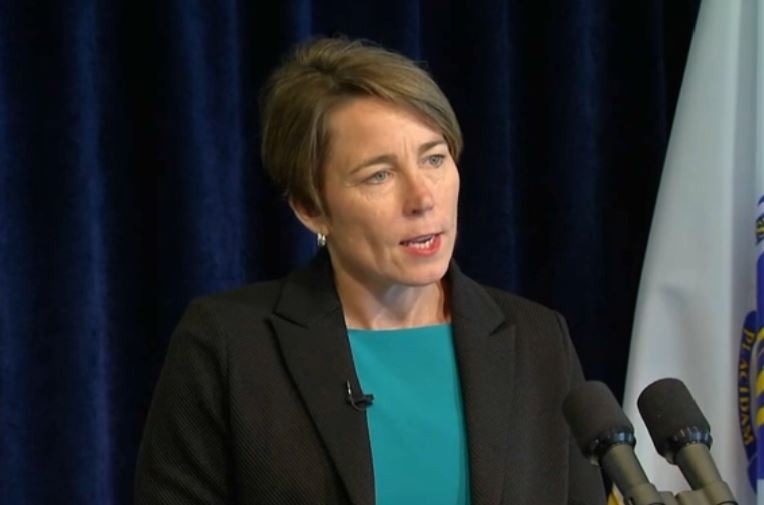
Low-income immigrant families would be eligible for state food benefits and cash assistance under legislation discussed Tuesday that coincides with a surge of new arrivals who are coming to Massachusetts.
The bills filed by Reps. Antonio Cabral and Judith Garcia and Sen. Sal DiDomenico (H135 / S76) would restore the public benefits that the state previously funded from 1997 to 2002, with the goal of tackling food insecurity among immigrants who are legally present and struggling to cover everyday necessities, the New Bedford Democrat and advocates testified at a Tuesday hearing. More than 50 lawmakers have signed onto the House and Senate proposals.
Alexandra Weber, chief advancement officer and senior vice president at the International Institute of New England, recounted how one client seeking asylum came to the United States to escape violence and find a better life, but she faced exploitation and hunger while ineligible for public benefits.
Passing the bills would allow vulnerable people, including children and mothers, to "receive the most basic humanitarian support," Weber told the Joint Committee on Children, Families and Persons with Disabilities.
Get Boston local news, weather forecasts, lifestyle and entertainment stories to your inbox. Sign up for NBC Boston’s newsletters.
"Every day we see the human cost of our broken federal immigration policies and their inequitable treatment of those legally present and seeking safety in the U.S.," Weber said.
The federal government's current set of eligibility requirements means immigrants from only certain countries -- including Cuba and Haiti -- can access federal Supplemental Nutrition Assistance Program and cash assistance benefits, said Patricia Baker, senior benefits policy advocate at the Massachusetts Law Reform Institute.
But a smaller volume of people in Massachusetts with the same immigration status from Venezuela, Nicaragua and Colombia do not qualify for those federal benefits, Baker told the committee.
"This is a crazy patchwork of eligiblity," said Baker, who's a member of the Feeding Our Neighbors Coalition, which launched in January and represents 70 organizations focused on health care, food assistance, immigrant advocacy and other community resources.
The proposals for nutrition and cash assistance backed by the coalition could help around 15,000 to 18,000 individuals, Baker told the News Service. California, Illinois, Maine, Montana and Washington offer state-funded benefits to immigrants, according to the coalition.
DiDomenico, in an interview with the News Service, emphasized that immigrants who are considered legal residents and on the path to becoming U.S. citizens would qualify for the state benefits, as the Everett Democrat acknowledged pushback he's heard from opponents who are critical of the state for providing public assistance to undocumented individuals.
DiDomenico said the expanded aid would alleviate pressure on community organizations, such as food pantries, and other strained state resources -- like the emergency shelter system that's now housing thousands of migrants.
In Gateway Cities like Everett and Chelsea, the bill would help people pay for stable housing for their families, DiDomenico said. As a right-shelter shelter state, Massachusetts must provide housing for homeless families.
"If we don't pass a bill like this and we don't have more assistance in their hands, potentially many of these families could end up in the emergency shelter system," DiDomenico told the News Service.
The Feeding Our Neighbors Coalition estimates the bill would cost $18 million in its first year, with the bulk of that figure tied to food benefits, Baker said. Yet as DiDomenico sees it, the upfront cost could shield Massachusetts from heftier long-term expenses, including from worsening housing and health care needs, that could further burden communities.
Dr. Claire Cecile Pierre, vice president of community health programs at Mass General Brigham, said she's "heartbroken" over the stories she hears from colleagues about children who are malnourished, as well as individuals who skip taking their medications due to cost barriers. At the hearing, Pierre expressed her support for the bills that she said could ensure access to "basic nutrition" for immigrants.
"I have personally and professionally witnessed the difficult decision immigrants make between food and medical care," said Pierre, who noted most choose food to survive. "For our patients, it is a painful existence."



